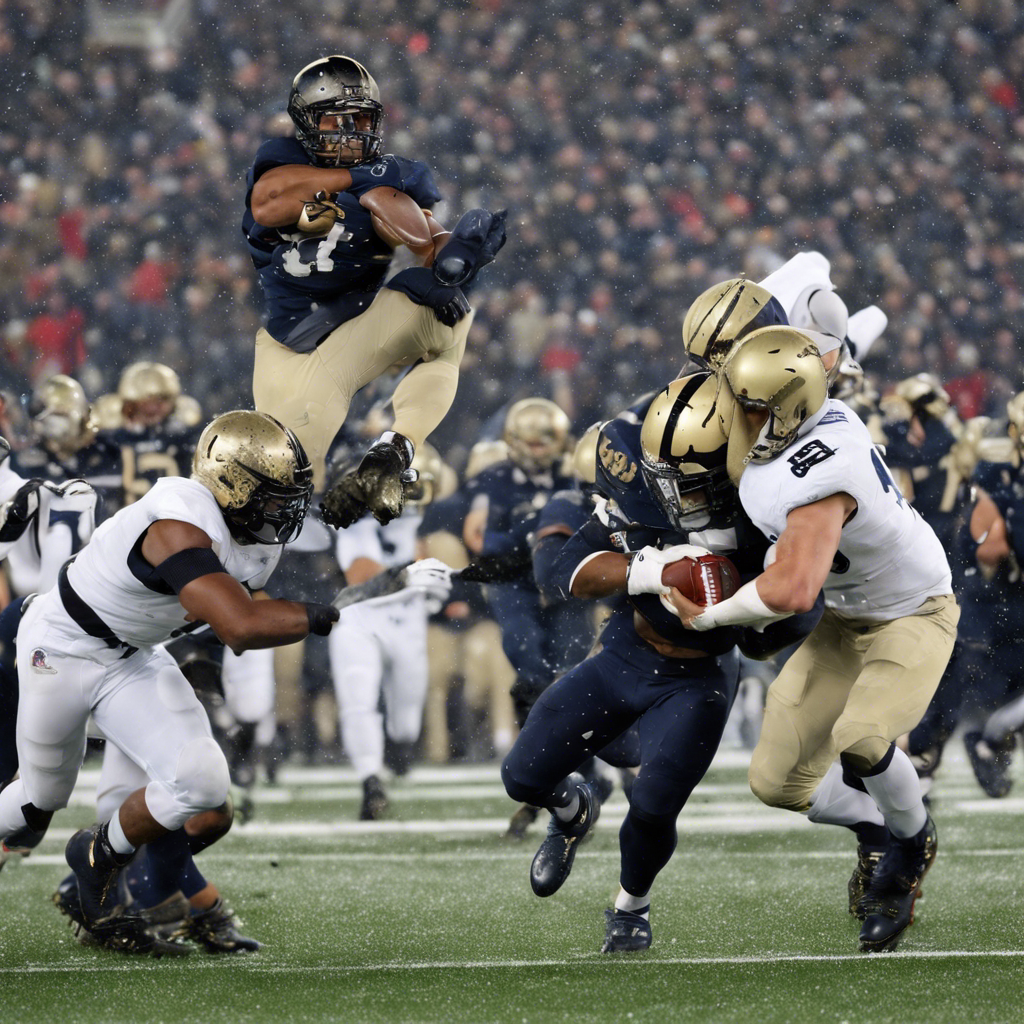Army-Navy Game: A Historic Rivalry Moves to New England

The Army-Navy game, one of college football’s most storied rivalries, is being played in New England for the first time in its 124-year history. The game’s relocation to Gillette Stadium in Foxborough, Massachusetts, marks a departure from its traditional home in Philadelphia.
The Army-Navy game has long been a cherished tradition in college football, capturing the spirit of competition and camaraderie between two of the nation’s most prestigious military academies. This year, however, the game takes on a new setting as it moves to Gillette Stadium in Foxborough, Massachusetts. The relocation presents a unique opportunity to honor the 250th anniversary of the Boston Tea Party and the Battles of Lexington and Concord, while also adding another chapter to the rich history of this historic rivalry.
A Break from Tradition: Why the Army-Navy Game is not in Philadelphia
For decades, the Army-Navy game has been synonymous with Philadelphia, with the majority of the games taking place in the city or the mid-Atlantic region. However, this year marks only the third time in the rivalry’s history that the game will be played elsewhere. In 1926, the game ventured to Chicago, and in 1983, it found its way to Pasadena, California. While Philadelphia has been the traditional home for this storied matchup, the decision to move the game to New England reflects a desire to pay homage to the region’s significant role in American history.
What to Expect in the 124th Army-Navy Game
As the 124th Army-Navy game approaches, anticipation builds for another closely contested battle between the two academies. Over the past nine games, the average margin of defeat has been a mere 7.6 points, highlighting the fierce competition that characterizes this rivalry. Both Army and Navy enter the game with 5-6 records, making this matchup all the more significant. The outcome of the game will not only determine bragging rights but also the fate of the Commander-in-Chief’s Trophy, with Army having a chance to claim it outright with a victory.
Players to Watch and Potential Game-Changers
In a game that often hinges on a few pivotal plays, the performances of individual players can have a profound impact on the outcome. Army quarterback Bryson Daily has been a standout player for the Black Knights, showcasing his skills and leadership throughout the season. On the Navy side, Pennsylvania natives Alex Tecza and Eli Heidenreich bring their talents to the field, with the potential to be game-changers for the Midshipmen. These players, along with the rest of their teams, will undoubtedly leave their mark on this historic matchup.
Reflecting on the Rich History of the Army-Navy Game
The Army-Navy game has a long and storied history, with Navy currently holding a slight edge in the all-time series with a record of 62-54-7. The rivalry has seen its fair share of memorable moments, including Navy’s dominant 51-0 victory in 1973 and Army’s thrilling 20-17 overtime win last year. Philadelphia has been a significant part of this history, hosting the game on numerous occasions, with Navy holding a winning record in the city. However, the game’s relocation to New England serves as a reminder of the game’s ability to adapt and evolve while remaining a cherished tradition.
Conclusion: As the Army-Navy game takes center stage in New England, it continues to captivate fans with its rich history, intense competition, and the spirit of unity it represents. This year’s matchup in Foxborough, Massachusetts, not only pays tribute to the region’s historical significance but also adds another chapter to the enduring legacy of this iconic rivalry. Regardless of the location, the Army-Navy game remains a testament to the dedication and sacrifice of the young men and women who represent these esteemed institutions, reminding us of the values they embody both on and off the field.

